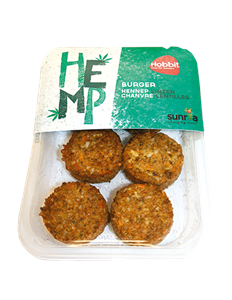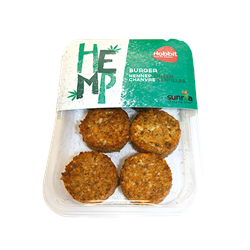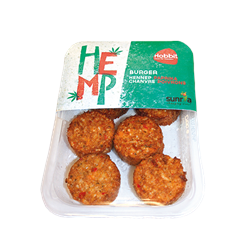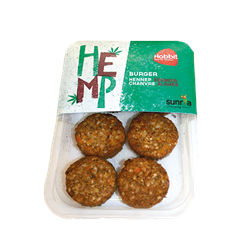Hemp grows best in a temperate climate and fits very well in the rotation scheme of European farmers. The crop grows without chemical pesticides and plant protection products, uses little water (one third of cotton cultivation) and can be grown without fertilizer. The deep and fine roots prevent hemp erosion and contribute to the improvement of the soil structure. Because of these properties, it contributes to the sustainability of the cultivation and also fits well in organic agriculture.
Hemp seeds have a good fatty acid balance. Hemp seed oil is rich in the omega-3 fatty acid, alpha-linolenic acid and the omega-6 fatty acid, linoleic acid, with a good ratio of omega-3 over omega-6 fatty acids. Interesting, because the intake of the semi-essential omega-3 fatty acids is usually too low in our Western diet. In addition, hemp is a rare source of GLA (gamma-linolenic acid). This fatty acid is important for the hydration and suppleness of the skin. Hence the use of hemp oil in many cosmetic products (eg shampoo). GLA is also found in breast milk.
Hemp seeds consist of more than 30% protein, which is particularly high. In addition, the protein is of high quality, it contains all essential amino acids in a good ratio and the protein is easily digestible. Recently, there is tofu based on hemp instead of soy, called hempfu. A tasty alternative to tofu, for people who are not allowed to eat soy.
Hemp is often claimed as a superfood. In addition to a good source of fats and proteins, hemp has a good dose of vitamins E, C and B (B1, B2, B3 & B6), minerals and trace elements (including the elements iron, magnesium, calcium, potassium, zinc, copper, phosphorus and iodine).
The Belgian company 'De Hobbit' produces vegan meat replacers of which 3 burgers based on hemp.


https://www.hobbit.be/en/products/burgers/hennepburger-met-linzen-1

https://www.hobbit.be/en/products/burgers/hennepburger-met-paprika-1

https://www.hobbit.be/en/products/burgers/hennepburger-met-zeewier-1